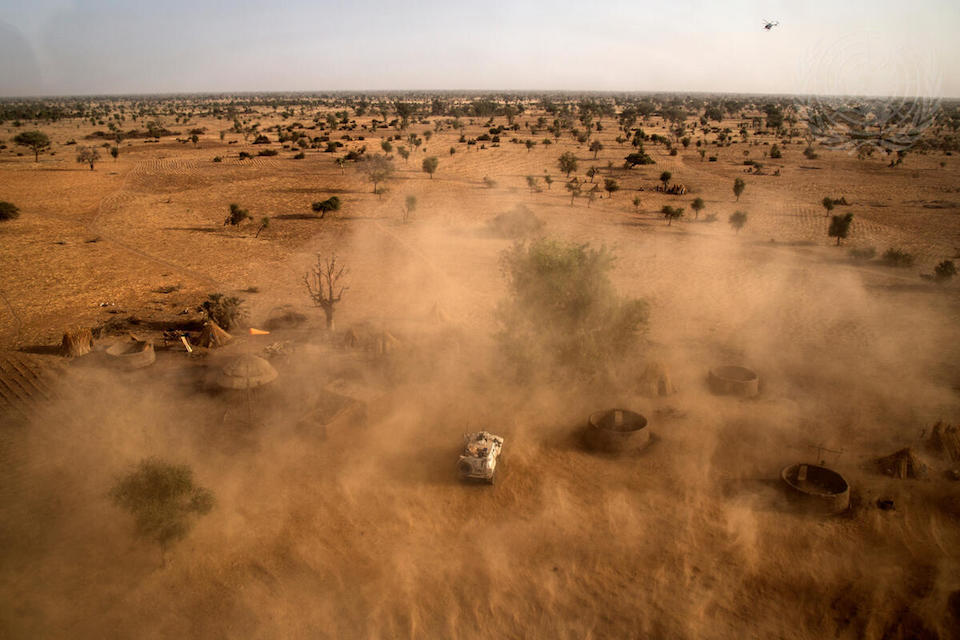
Thank you, Mr President, and my thanks to all the briefers that we’ve heard from today. As ever, your insights give us a fuller picture of the challenges facing the Sahel region and your prognoses for the way forward are incredibly important to our thinking. I’m also very grateful, as ever, to Ambassador Abarry for the A3 statement and the insights there, too.
Mr President, as we’ve heard in the last six months and again here today, we have witnessed a growing number of attacks in Niger, creeping instability into southern Mali, and renewed attacks on villages in Burkina Faso. Civilians are being killed; they’re being displaced; children are losing access to education as schools close; and again there is an increasing threat of famine across the region.
Mr President, we recognise the enormous efforts of the G5 states to address the challenges facing the region. And we welcome, in particular, their commitment through the Sahel Coalition Roadmap to refocus attention on governance, on development and the provision of basic services. This has to underpin the support for the military response to the instability in the Sahel.
And this is equally true in Chad, and in particular, with the establishment of the Transitional Military Council on the sad death of President Déby. And we urge this Transitional Council to deliver a peaceful, timely transition to civilian and constitutional rule, including through free and fair elections within an 18-month timeframe.
We also welcome the steps taken by the Joint Force to improve coordination with other forces on the ground and to build trust with local communities. The UK’s troop deployment to MINUSMA is seeing first-hand the impact of effective civilian and military coordination, including dialogue with communities about their protection needs and their security concerns. And just this last week, we saw how that intelligence from communities can help drive activity on the ground to defeat armed groups.
Mr President, we do, however, remain concerned about continued allegations of human rights violations, and we welcome the swift action, as set out by USG Lacroix, that the Force and the Nigerien and Chadian authorities have taken immediately following recent allegations in Niger. We think this sends an important message about accountability. And we’re also encouraged by the role played by OHCHR in supporting this work. But there is more to do, as Mr Lacroix says. The human rights situation continues to deteriorate and incidents involving security forces persist. So we urge the Joint Force and relevant national authorities to really follow through on their commitments to ensure those responsible for human rights violations are held to account. And I also just want to echo here the point made by Ambassador Byrne Nason just now about senior women in leadership roles and the military and the police and the huge positive impact this could have in this respect.
Mr President, in concluding, I want to return to our main point. The G5 Sahel Joint Force is obviously a key part of the solution to peace and stability in the region. However, it is only one part of the solution. As the Sahel Coalition Roadmap makes clear, security interventions need to be part of a concerted political effort to address the root causes of conflict. G5 governments, with support from the international community, need to address governance and sustainable development needs, if military action is to have a lasting effect.
Thank you, Mr President.